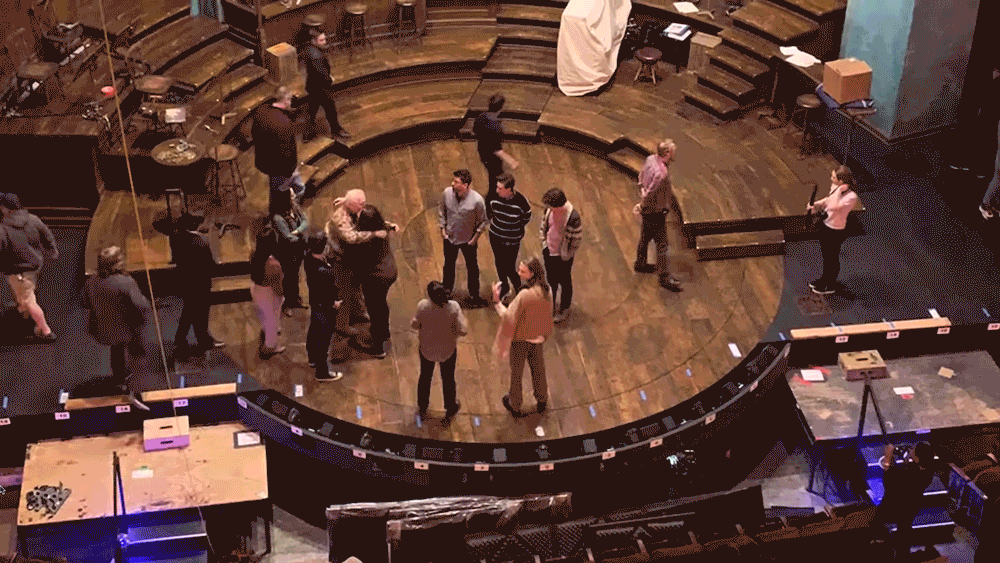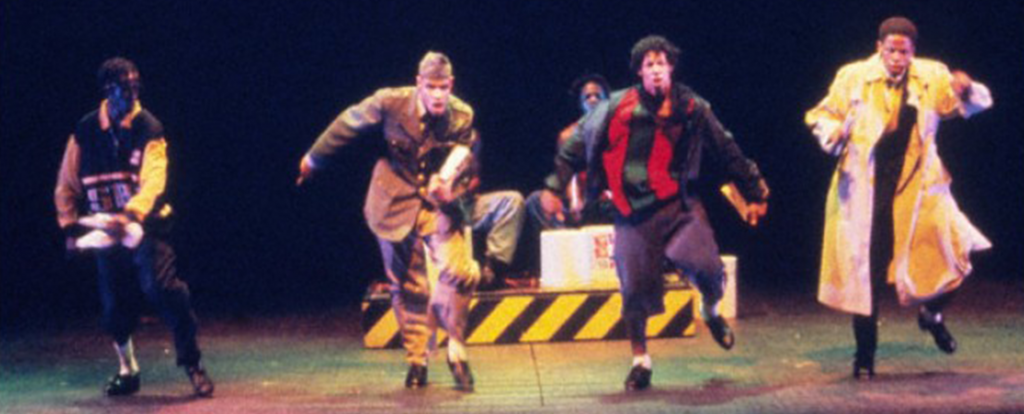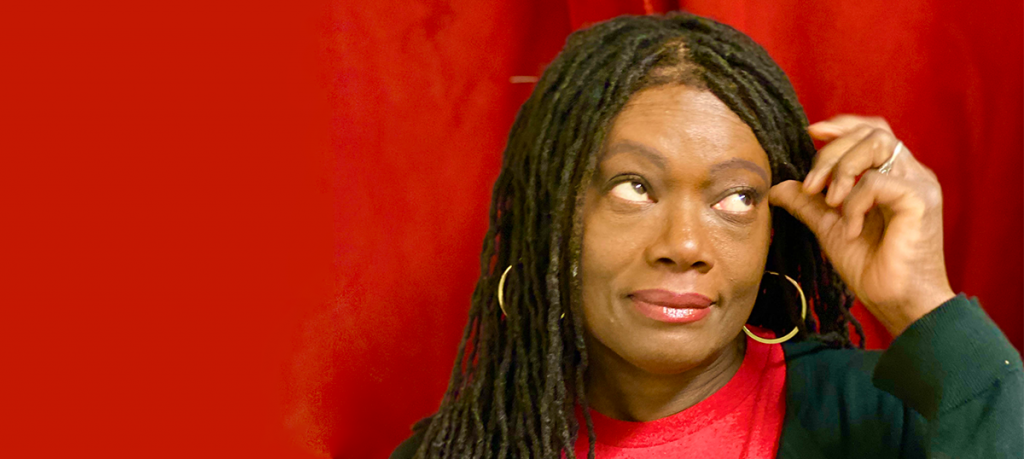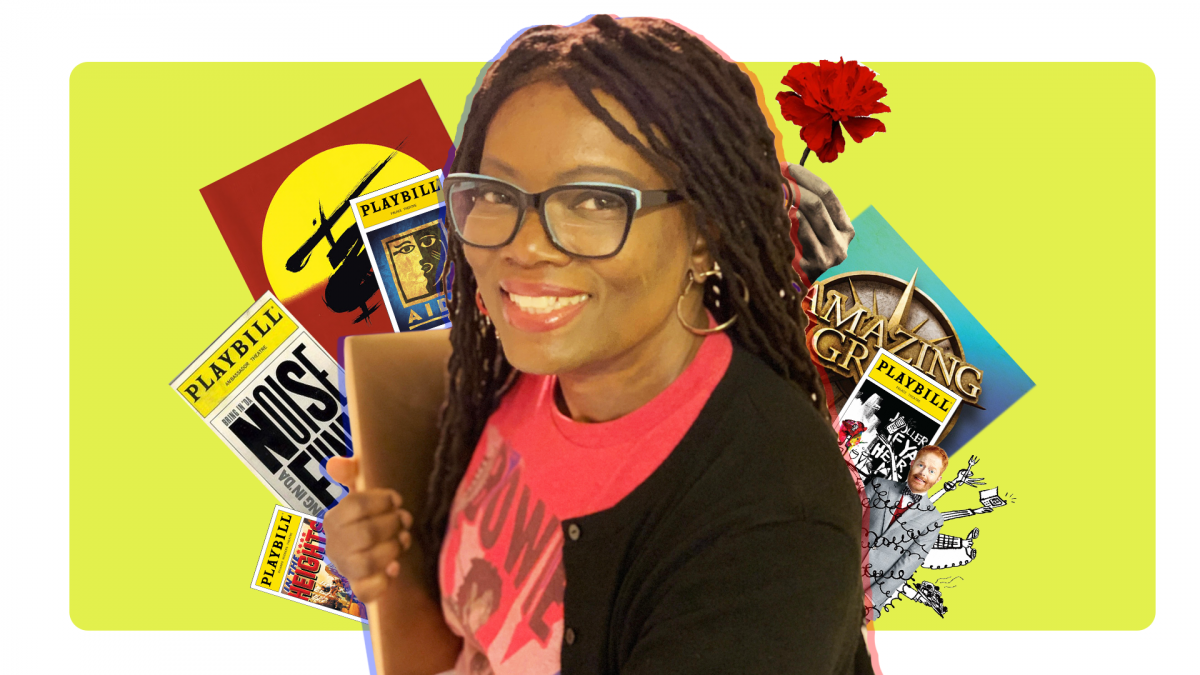Beverly Jenkins is not afraid of a cut show. That’s a performance where there are more actors calling out than there are understudies or swings to replace them, and it requires a last-minute reconfiguration of everything from blocking to costuming to the placement of props.
For many people, this would be terrifying, but for Jenkins, who’s been a Broadway stage manager since the early 90s, it’s an opportunity.
“It’s a challenge I actually enjoy,” she says. “I know it’s a crazy thing to enjoy. It’s not something you wish for, but if you need to make it happen and you have the right people, you can make it happen.”
Case in point: At one performance of Broadway’s A Bronx Tale The Musical, she only had one Black actress available, even though there was a scene that required two. “I had to decide,” she recalls. “‘Do I have one Black female on stage, or do I have a Black female and a Black male in that other track?’ I’d planned for that, because you have to plan for that, even if it never happens. So I made the decision to have a Black male on stage, because otherwise it would have thrown some things off [to just have one person]. I spoke to some people; we made a few changes, and it worked. No problem.”
That solution indicates what a distinct style of stage management Jenkins has developed over her career, which includes landmark productions like Bring in ‘Da Noise, Bring in ‘Da Funk; the original Miss Saigon; and her current gig as the production stage manager for Hadestown.

Crucially, she sees a cut show as a chance to connect. “It’s a community event,” she says. “You check with wardrobe, and they’ll make adjustments. The music department and the dance captains are involved. I always reach out to the director or the AD to make sure my choices are okay. And I take the personal trip to tell people what’s happening. I get a couple of extra steps in on my FitBit, and I’m good. I want to make sure I’m personally letting people know what’s going on before they step on stage.”
Those steps — up and down stairs, into the green room, into the wings — set Jenkins apart “Beverly runs a building, and she doesn’t have to open her computer to do it,” says Michael Rico Cohen, a fellow stage manager who has worked alongside her on A Bronx Tale The Musical, Amazing Grace, and Fully Committed.
“She is the person-to-person contact. She’s the problem solver. She’s the empathy master.”
Or to borrow a phrase Jenkins uses to describe herself, she’s a mom of many. “I’m fine with the tech,” she says. “It’s all good. I’m very calm, and I can call a cue just as well as the next person, but I believe my speciality is about being hands-on with the people. I put a lot of thought and care into everyone — not just the actors, but everyone — coming into that theatre.”
On every show, then, a big part of her job is figuring out exactly what this particular group of people needs. For instance, on Bring in ‘Da Noise, Bring in ‘Da Funk, the 1996 dance musical that uses tap to trace Black history in the United States, Jenkins worked with performers who were more familiar with the dance world than with Broadway. “Sorry Equity, but I had to bend the rules for this group of young men,” she says. “I had to assess the rules and see what they needed. Like, ‘I know this is half hour, and if you’re not here at half hour, then I need you to call me and tell me how far away you are. And as Iong as I know you’re coming, you get a five-minute grace period.’ And that’s something I still do, the five-minute grace period.”

On Noise/Funk, she also turned her office into an occasional daycare center, so that parents in the company could bring their children with them when there were no other options. She recalls, “I had Barney tapes. I had a playpen. I was like, ‘You’re not going to be forced to miss work because you’re doing the right thing with your child.’ I have to get my show up, no matter what. I have to figure out how to get the best show on stage today. And on that show, watching kids was part of it.”
For Amazing Grace, the 2015 Broadway musical that explores how the British slave trade inspired the titular hymn, Jenkins knew her job required extra compassion. She says, “Amazing Grace was important to me because of what was happening on stage. How hard is it that the first time you see Black people on stage, they are stuffed in a crate, and then they get pulled out, thrown on the ground, and shot in the back? So when the actors come off stage, how can they not carry that off stage? How do we make sure that these people are not carrying the feelings of trauma off stage with them?
“We had company morale-building events. We had t-shirt day. We made sure the dressing rooms were mixed, and that we weren’t keeping the Puritans over here and the Africans over here. It was good to see everyone put thought into how to make this a harmonious backstage area and still tell that particular story.”
It no doubt helped that Jenkins herself was spearheading the backstage culture. “She is wildly good at creating fellowship and community,” says Rachel Chavkin, the director of Hadestown.
“She exudes exuberance, but also doesn’t beat around the bush when she’s got a problem to work through. And she’s not precious, because she’s focused on problem-solving at every turn.”

Jenkins asserts that small touches help a company avoid bigger problems, particularly when they’re together for a lengthy run. That’s one reasons she runs a “turkey hand” contest for Thanksgiving, getting everyone in the building to trace their hand on construction paper and then turn it into a decorated turkey drawing. “And believe me, there are prizes, honey,” she says.
Cohen confirms, “There’s nobody that loves a turkey hand competition more than Beverly Jenkins. But it’s more than just turkey hands or door decorating contests or the Father’s Day barbecue. She’s a master of the casual-but-meaningful interaction. It creates a camaraderie and an immediate trust. It’s these little things that really make the building a happy place over a period of years. All of those things are just as important — and sometimes more — than announcing what we’re doing in understudy rehearsal on Friday.”
Mark Blankenship is the founder and editor of The Flashpaper and the host of The Showtune Countdown on iHeartRadio Broadway.
